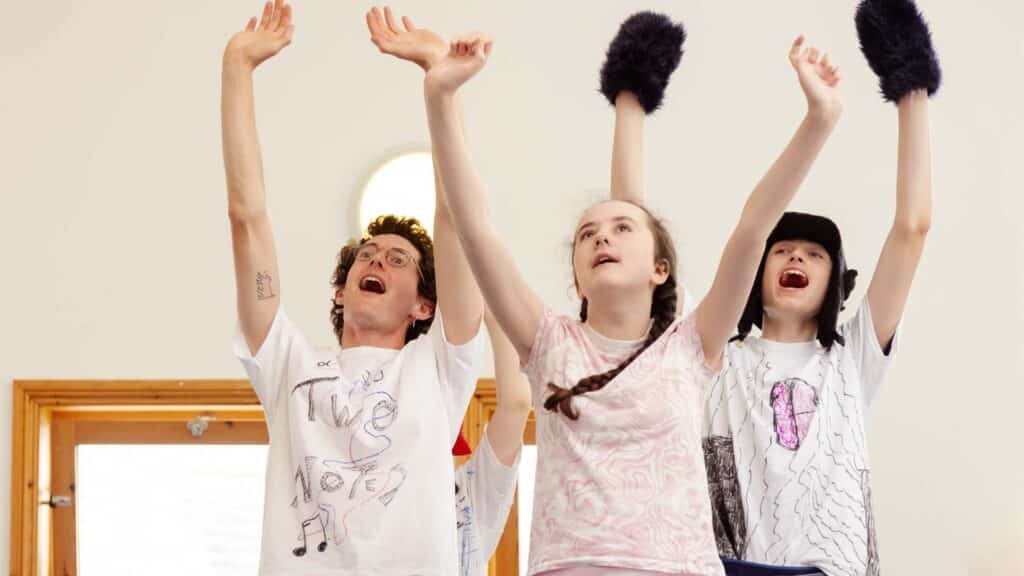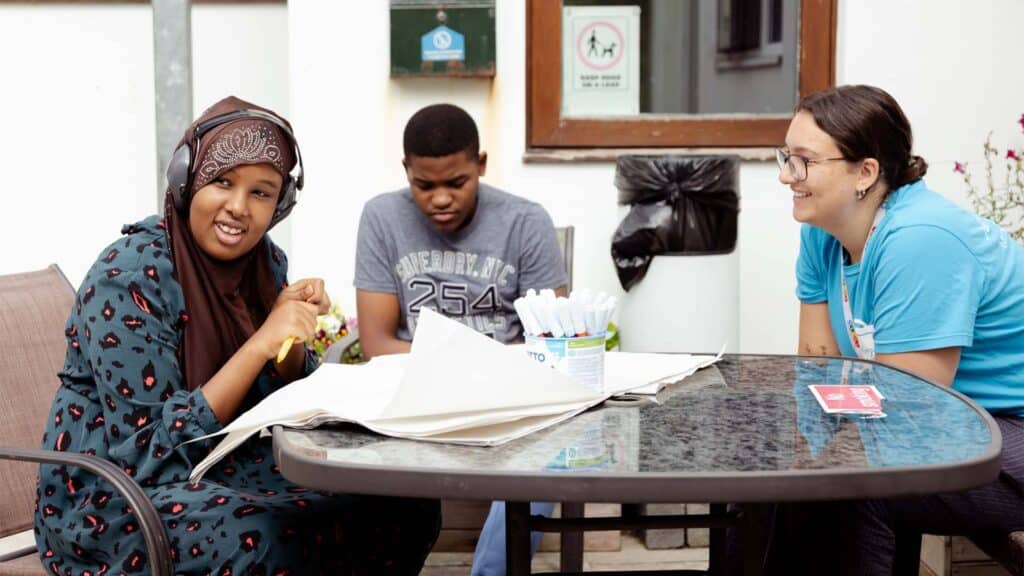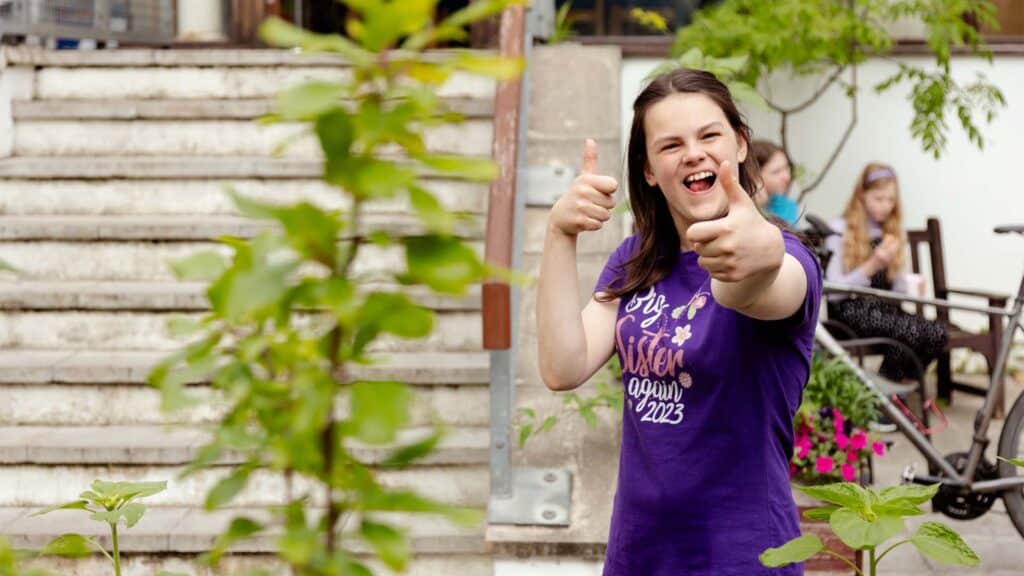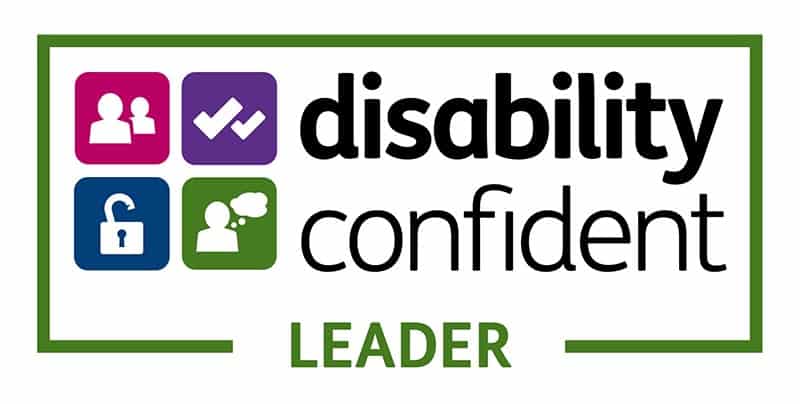
The school holidays can be a challenging time for families, with a new routine and different support system to term time. For Disabled children and young people, these changes can mean that their behaviour tends to change as well, and it can be difficult to balance childcare and other responsibilities. But, know that if you or your family is struggling to adjust, you are not alone.
The holidays are a time to be celebrated, not feared; fortunately, there are so many ways and organisations that are here to help you and your family enjoy the school break. Discover our top 5 tips for supporting both you and your child’s mental and emotional wellbeing this half term, and every school holiday!
1. Keep in touch
All challenges are better when faced together. Speaking to other parents and carers that are having the same experience can really help you stay connected to other families over holidays. Maybe you can have a text conversation about your experience, or arrange to meet up with another family so your children can play together which can also reinforce their friendships. Remember that all parents have bad days and it’s ok to struggle with your mental health; make the most of the support groups and networks in place.
Bristol Parent Carers is a nonprofit group run by parent carers who work with local SEND services to ensure that families receive the right support. You can join their community, or volunteer. Bristol Autism Support is a parent and carer support service offering a helpline, in person support sessions and a Facebook group to help parents of Autistic children and young people stay connected and share their experiences. Murmuration Communication Therapy enables SEND parents to connect and share in a safe, compassionate and non-judgemental space through nurture groups, monthly gatherings and mini retreats. At WECIL we can also signpost you towards the right support networks for parents and carers in your local area.

2. Try something new
It’s common for parents to not want to try new things over the holidays because they’re anxious about how their child might react in a new situation. But having and sharing new experiences will benefit your child further down the line, and adapting to change is a positive skill to nurture. Why not use the holidays as a time for your family to try something new in a safe and supportive environment – Ignite Bristol offers inclusive sports activities for Disabled children for all ages, including cycling and inclusive dance and cricket, Bristol Autism Project provide a range of family activitiesactivties for autistic children and their families,v and at WECIL we run a range of holiday play schemes.
3. Go outside
Outdoor play and activities improve mood, alleviate stress and help children to stay physically active. Being in nature has been proven to positively influence wellbeing, and whether you and your family get outside for 5 minutes or 5 hours, every little bit makes a difference. Being outside gives children the chance to engage in imaginative play, build resilience, adapt to changes in their surroundings, like the weather and seasons, and learn from nature. Whether you live rurally or in the city, there are plenty of green spaces that you and your family can visit come rain or shine. Try activities like treasure hunts, taking leaf rubbings, gardening or simply taking a walk. From Windmill Hill City Farm to Leigh woods, take a look at this list of outdoor play places in Bristol from the Children & Young People’s Network.

4. Have a routine
Having a routine is important, but you don’t need school to maintain consistency – it is possible to continue a routine during the holidays too. It can be comforting for your child to continue the structure that they are used to, at least in some form. If at school they do arts and crafts on Tuesday afternoons, why not do that at home too! This can create a sense of stability and safety. There are also local group sessions and holiday groups that can facilitate a more structured routine, like WECIL’s holiday schemes.
But equally, don’t worry if you don’t continue a routine and switch things up instead. You know the needs of your child best, and will make the best decision for them and their needs. Have the confidence to plan your holiday schedule to align with your individual child.

5. Have downtime
Remember that you don’t have to be doing exciting things all the time during the holidays for it to be a well rounded and nourishing time for your family. Playing at home sometimes is completely ok, and it can give you space to relax which is equally important as being out and about. Downtime means different things for everyone – some children might prefer non stimulating activities, but you know what’s best for your child so have a think about what a restful activity means for them. Downtime for parents is important as well, to take time for yourself and allow you to be the best version when you are with your child. Even if it’s half an hour, give yourself the opportunity to recharge. At WECIL we offer a short breaks service that gives parents a chance to do something you might not normally have the time to do, whilst your child does fun activities with their peers. Whether it’s catching up with a friend over coffee or doing household chores so you can relax in the evenings, make the most of these services to help your whole family re energise.
Most local authorities also offer short break services, including the Bristol Local Offer, B&NEs Local Offer, South Gloucestershire Local Offer and North Somerset Local Offer.
Summary
The holidays are always going to bring up difficulties, but there are a lot of ways to get support. Whilst every family is different, research what groups, organisations and resources there are that will best suit you and your child’s needs, and make the most of the time off this Autumn!



